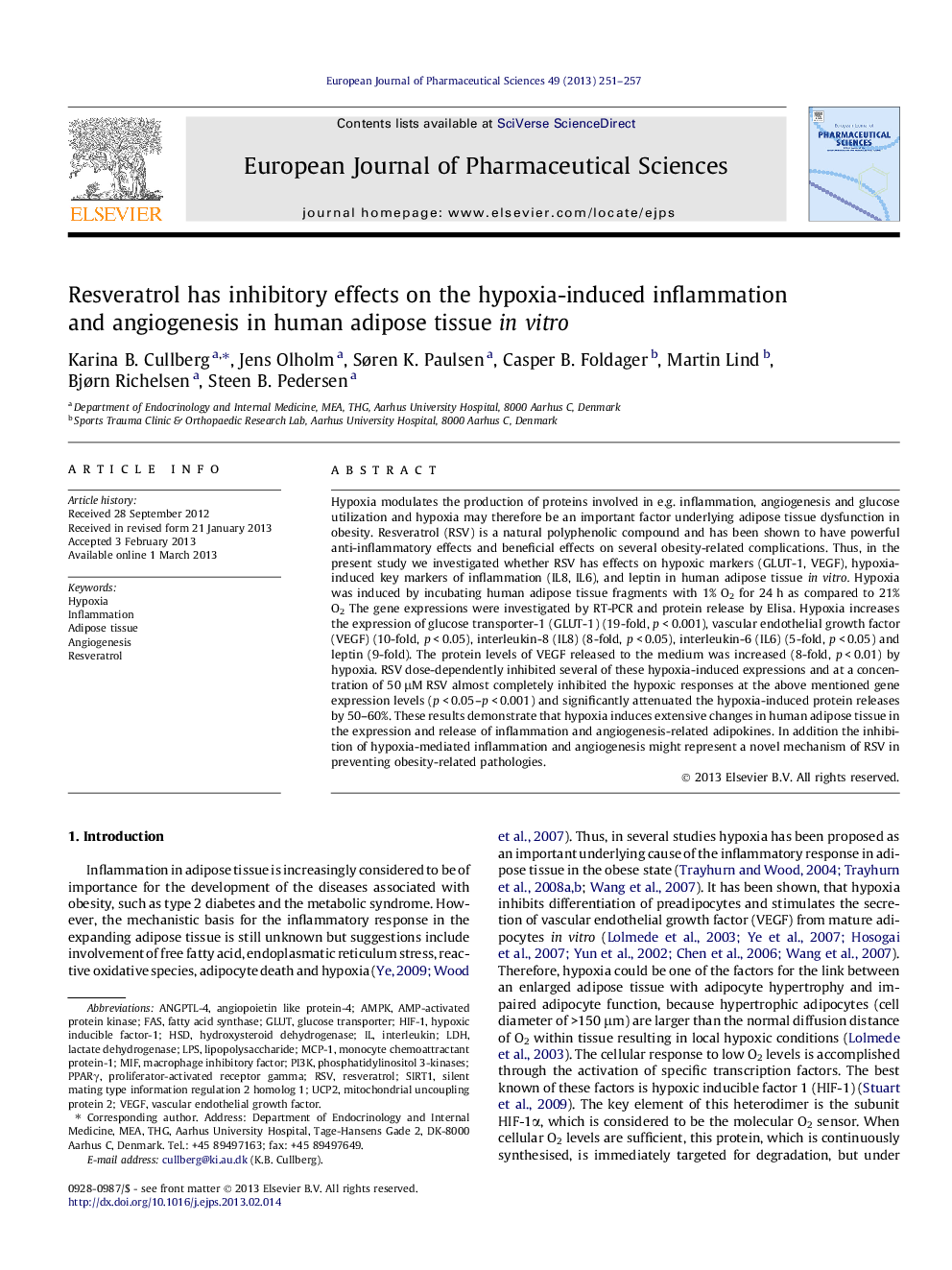| Article ID | Journal | Published Year | Pages | File Type |
|---|---|---|---|---|
| 5810120 | European Journal of Pharmaceutical Sciences | 2013 | 7 Pages |
Hypoxia modulates the production of proteins involved in e.g. inflammation, angiogenesis and glucose utilization and hypoxia may therefore be an important factor underlying adipose tissue dysfunction in obesity. Resveratrol (RSV) is a natural polyphenolic compound and has been shown to have powerful anti-inflammatory effects and beneficial effects on several obesity-related complications. Thus, in the present study we investigated whether RSV has effects on hypoxic markers (GLUT-1, VEGF), hypoxia-induced key markers of inflammation (IL8, IL6), and leptin in human adipose tissue in vitro. Hypoxia was induced by incubating human adipose tissue fragments with 1% O2 for 24 h as compared to 21% O2 The gene expressions were investigated by RT-PCR and protein release by Elisa. Hypoxia increases the expression of glucose transporter-1 (GLUT-1) (19-fold, p < 0.001), vascular endothelial growth factor (VEGF) (10-fold, p < 0.05), interleukin-8 (IL8) (8-fold, p < 0.05), interleukin-6 (IL6) (5-fold, p < 0.05) and leptin (9-fold). The protein levels of VEGF released to the medium was increased (8-fold, p < 0.01) by hypoxia. RSV dose-dependently inhibited several of these hypoxia-induced expressions and at a concentration of 50 μM RSV almost completely inhibited the hypoxic responses at the above mentioned gene expression levels (p < 0.05-p < 0.001) and significantly attenuated the hypoxia-induced protein releases by 50-60%. These results demonstrate that hypoxia induces extensive changes in human adipose tissue in the expression and release of inflammation and angiogenesis-related adipokines. In addition the inhibition of hypoxia-mediated inflammation and angiogenesis might represent a novel mechanism of RSV in preventing obesity-related pathologies.
Graphical abstractDownload high-res image (121KB)Download full-size image
